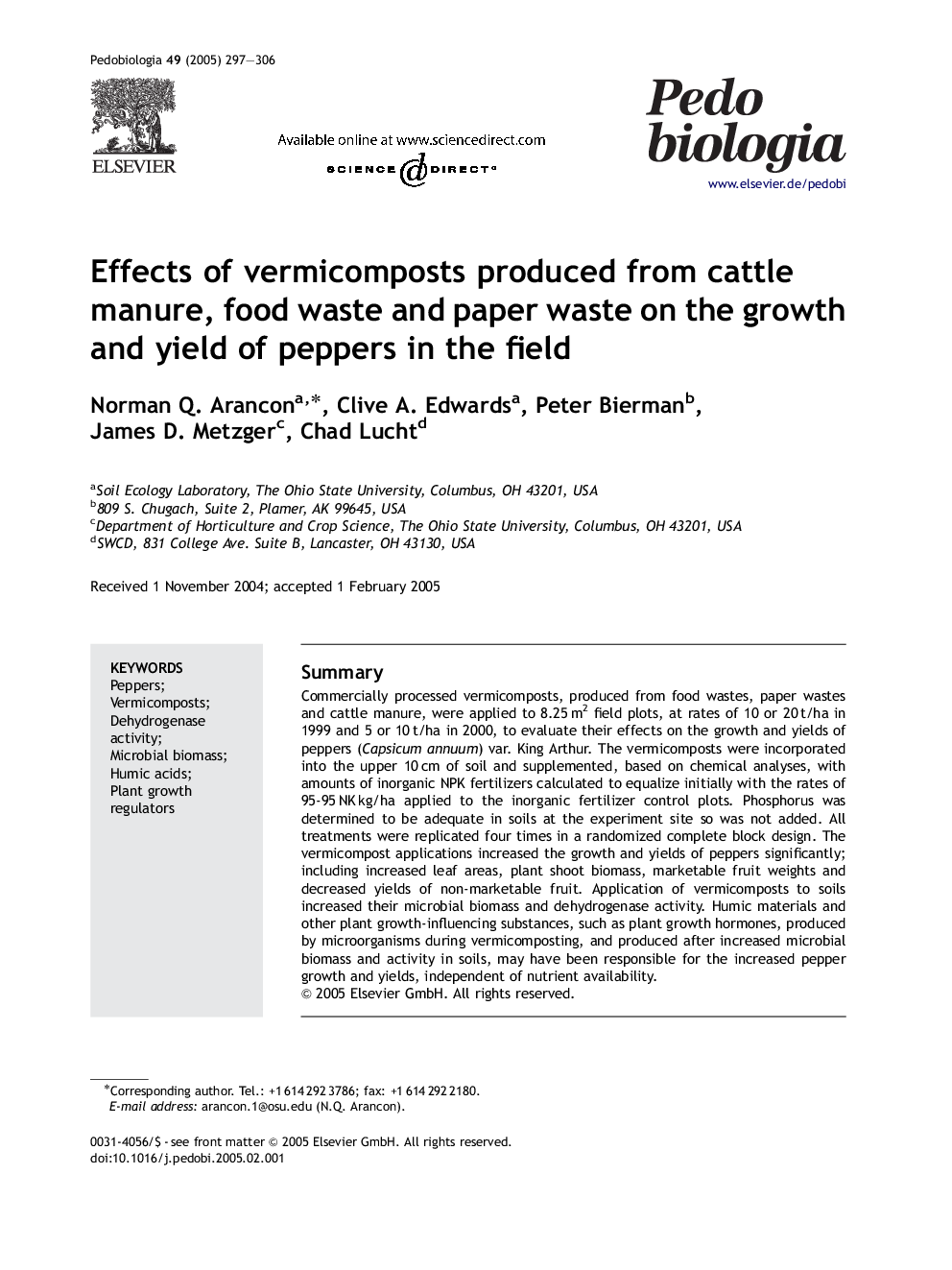| Article ID | Journal | Published Year | Pages | File Type |
|---|---|---|---|---|
| 10878698 | Pedobiologia | 2005 | 10 Pages |
Abstract
Commercially processed vermicomposts, produced from food wastes, paper wastes and cattle manure, were applied to 8.25Â m2 field plots, at rates of 10 or 20Â t/ha in 1999 and 5 or 10Â t/ha in 2000, to evaluate their effects on the growth and yields of peppers (Capsicum annuum) var. King Arthur. The vermicomposts were incorporated into the upper 10Â cm of soil and supplemented, based on chemical analyses, with amounts of inorganic NPK fertilizers calculated to equalize initially with the rates of 95-95Â NKÂ kg/ha applied to the inorganic fertilizer control plots. Phosphorus was determined to be adequate in soils at the experiment site so was not added. All treatments were replicated four times in a randomized complete block design. The vermicompost applications increased the growth and yields of peppers significantly; including increased leaf areas, plant shoot biomass, marketable fruit weights and decreased yields of non-marketable fruit. Application of vermicomposts to soils increased their microbial biomass and dehydrogenase activity. Humic materials and other plant growth-influencing substances, such as plant growth hormones, produced by microorganisms during vermicomposting, and produced after increased microbial biomass and activity in soils, may have been responsible for the increased pepper growth and yields, independent of nutrient availability.
Keywords
Related Topics
Life Sciences
Agricultural and Biological Sciences
Animal Science and Zoology
Authors
Norman Q. Arancon, Clive A. Edwards, Peter Bierman, James D. Metzger, Chad Lucht,
